5 Common Car Problems That Can Be Prevented With Auto Maintenance Services
In the fast-paced world we live in, car maintenance often takes a backseat until a problem arises. Many car owners underestimate the importance of regular auto maintenance services until faced with expensive repairs. By prioritizing routine services, you can not only extend the life of your vehicle but also maintain its performance and safety. Consistent maintenance is the key to avoiding many common car problems that can disrupt your daily life unexpectedly. In this article, we will explore several car issues that can be effectively prevented with routine maintenance services.
1. Engine Issues
Engine overheating is a prevalent issue that can severely damage your vehicle if neglected. One primary cause of overheating is inadequate coolant levels, which are critical for heat management. Regularly checking and topping off coolant helps in maintaining the optimal temperature for engine operation. Neglecting this simple yet vital task can lead to costly repairs and even complete engine failure in severe cases. Therefore, ensuring the coolant is neither too low nor contaminated is an essential preventive measure.
Radiators and hoses play a crucial role in the cooling system of a vehicle. With time and regular use, these components can wear down or develop leaks. Inspecting hoses for any signs of wear and promptly replacing them can prevent fluid loss, which may lead to an overheated engine. A well-functioning radiator is essential for maintaining the proper cooling of the engine, and any damage should be addressed swiftly. Maintaining these components through regular inspections and auto maintenance services helps avoid the risk of overheating and prolongs engine life.
The thermostat is a small but vital component within the cooling system, responsible for regulating engine temperature. Ensuring that the thermostat functions correctly is crucial in preventing engine overheating. If the thermostat malfunctions, it can lead to either persistent overheating or insufficient engine warmth, both of which are problematic. Routine testing and timely replacement of the thermostat help maintain the delicate temperature balance essential for engine efficiency. A well-maintained thermostat supports consistent engine performance, enhancing vehicle reliability.
2. Brakes
The braking system is an indispensable safety feature of any vehicle, yet it is commonly neglected. Brake fluid plays a pivotal role in transferring pressure from the brake pedal to the brake pads. Over time, brake fluid can absorb moisture, which diminishes its effectiveness, potentially leading to brake failure. Regular fluid replacement is necessary to maintain the optimal function of the brakes and ensure safe driving conditions. This preventive measure not only enhances braking performance but also safeguards against costly repairs.
Brake pads and rotors are susceptible to wear due to the friction generated during braking. Over time, worn-out pads can impair braking efficiency and lead to rotor damage. Regular inspections help identify wear patterns and inform timely replacements. Ensuring that brake pads and rotors are in good condition is crucial for maintaining effective braking performance. By prioritizing these maintenance tasks, vehicle owners can prevent unexpected brake failures and ensure greater safety on the road.
The Anti-lock Braking System (ABS) is an advanced feature that enhances vehicle control during braking. Regular checks are vital to ensure that the ABS operates correctly, preventing wheel lockup under hard braking. A malfunctioning ABS can compromise vehicle handling and safety, especially in adverse conditions. Routine inspections of this system, as part of your regular auto maintenance services, can identify and resolve potential issues before they develop into serious problems. Keeping the ABS in optimal working condition contributes to a safer, more reliable driving experience.
3. Battery Failures
A car battery is essential for starting and operating numerous vehicle electronics. Corrosion at the terminals is a common issue that can disrupt electrical connectivity. Regular cleaning of the terminals prevents this problem, ensuring reliable battery performance. As part of routine maintenance, this simple task can save time and inconvenience caused by unexpected start-up failures. By keeping the battery terminals clean, you enhance the longevity and reliability of the battery.
Regular testing of the battery's charge levels provides vital insights into its health and performance. According to Bankrate, vehicles typically need a trip to the mechanic for general upkeep about every 5,000 miles, during which the battery should also be evaluated. Early detection of a weakening battery can prevent inconvenient breakdowns and starting issues. By addressing battery issues proactively, vehicle owners can ensure uninterrupted operation. Routine battery testing is a preventative measure that offers peace of mind to drivers.
Corrosion can severely impact a battery's ability to power a vehicle effectively. It can develop not only at the terminals but also along battery cables and connections, reducing efficiency. Regularly inspecting the battery components for signs of corrosion helps maintain optimal electrical performance. Addressing corrosion promptly by cleaning or replacing affected components extends the life of the battery. Maintaining a corrosion-free battery setup is essential for ensuring reliable power delivery and vehicle performance.
4. Tire Blowouts
Tire pressure is a critical aspect that influences vehicle safety and performance. Under-inflated or over-inflated tires can lead to blowouts, reduced fuel efficiency, and uneven tire wear. Regularly checking and adjusting tire pressure to recommended levels helps prevent these problems. Properly inflated tires last longer, contribute to better handling, and improve fuel economy. Routine pressure checks are a simple but effective measure to avoid tire-related issues.
Tire rotation and balancing are important practices that extend tire lifespan and enhance vehicle performance. Uneven tire wear occurs naturally due to differences in weight distribution and driving habits. By periodically rotating tires and ensuring they are balanced, even wear patterns can be achieved. This practice not only prolongs tire life but also leads to smoother rides and improved handling. Ensuring routine rotation and balancing helps maintain vehicle safety and efficiency.
Proper wheel alignment is essential for maintaining vehicle stability and preventing uneven tire wear. Misalignment can occur from everyday driving or after hitting potholes and obstacles. Regular alignment checks correct this issue, ensuring that the vehicle steers accurately and responds well to inputs. Proper alignment contributes to optimal tire wear, fuel efficiency, and overall driving comfort. Maintaining alignment as part of standard auto maintenance services safeguards against premature tire and suspension system wear.
5. Transmission Problems
Transmission fluid is vital in lubricating and cooling various components within the transmission. Over time, the fluid can degrade, losing its effectiveness and leading to performance issues. Routine inspections and changes of transmission fluid help prevent overheating and wear. Clean and sufficient fluid supports the longevity and reliability of the transmission system. Prioritizing fluid maintenance reduces the risk of costly transmission repairs or replacements.
The clutch system in manual transmissions requires regular attention to ensure optimal function. Wear and slippage are common concerns that can lead to poor gear engagement and transmission performance. Regular inspection and adjustments help address these issues before they escalate into significant problems. By maintaining the clutch system, drivers can enjoy smoother gear changes and prolong the life of transmission components. Timely maintenance of the clutch is a crucial aspect of overall transmission health.
Fluid leaks pose a serious threat to the health of the transmission system. Minor leaks can quickly escalate into major problems affecting transmission performance. Regular inspections for signs of leaks and addressing them promptly can prevent severe damage. Detecting and repairing leaks early is a proactive approach that saves on long-term repair costs. This essential maintenance task protects the transmission, ensuring dependable vehicle function.
Preventive auto maintenance services are not just necessary; they are a wise investment that can save money and time. By addressing potential problems before they occur, you extend the life of your vehicle and improve its performance. Regularly scheduled maintenance is key to avoiding common car problems and ensuring a reliable and safe driving experience. Committing to routine checks and service helps avoid unexpected breakdowns and costly repairs. Make regular maintenance a priority to enjoy the benefits of a well-functioning, efficient vehicle.
Stay ahead of costly repairs and unexpected breakdowns—trust Red's Garage to handle your auto maintenance services with expertise and care. Schedule your routine checkup today and keep your vehicle running smoothly, safely, and efficiently.
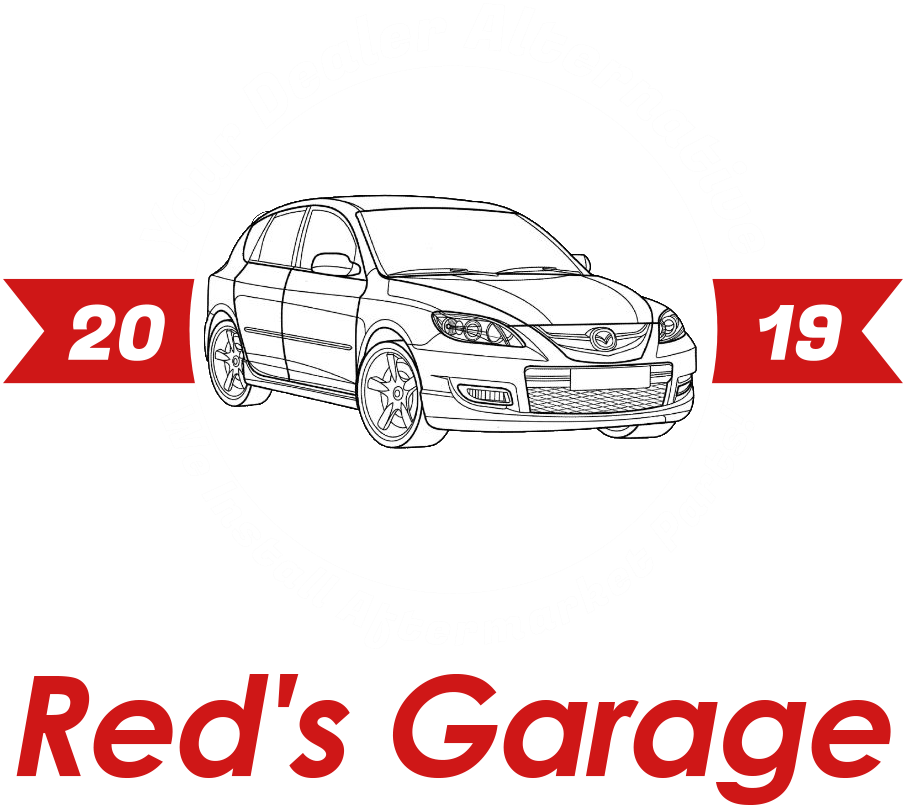
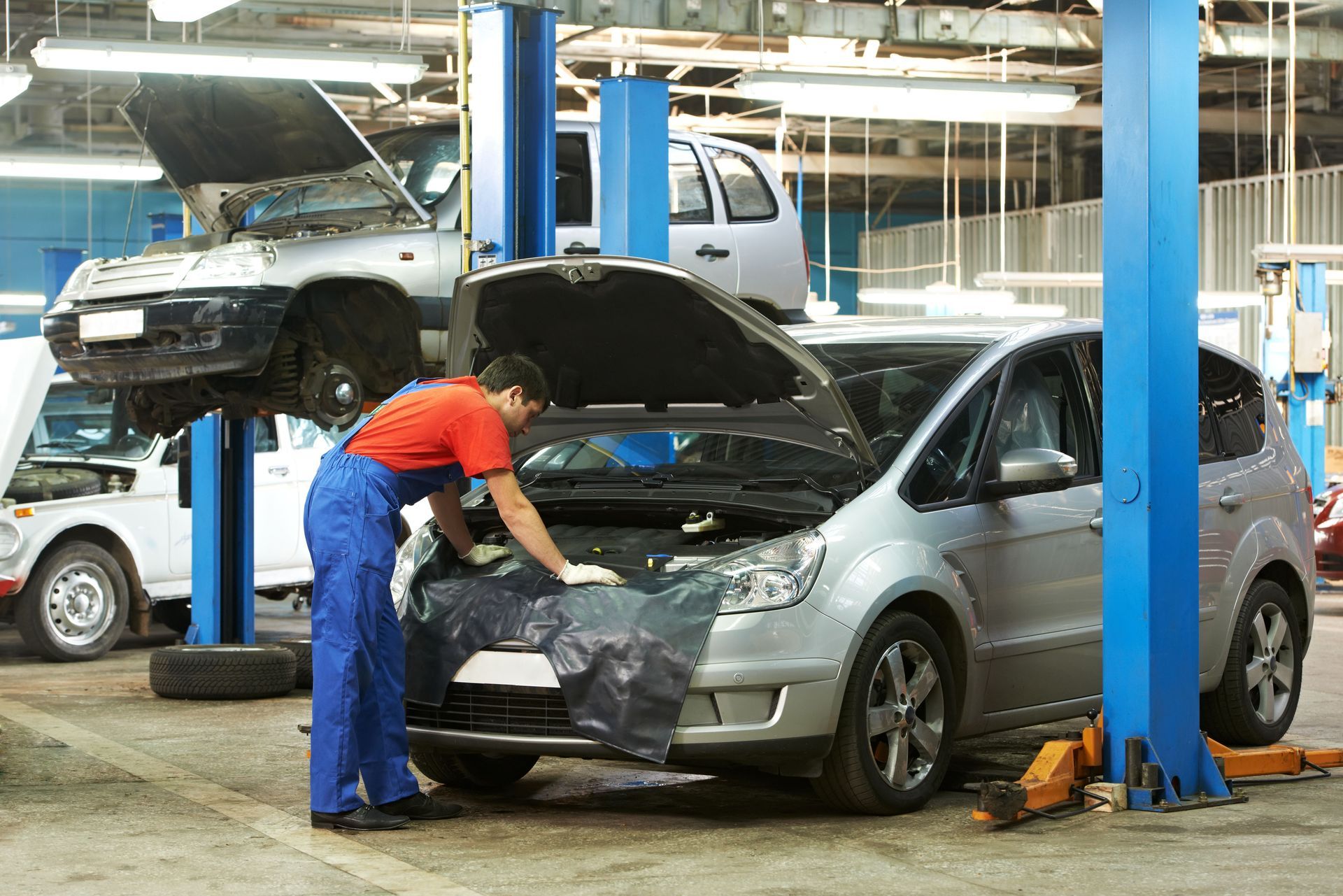
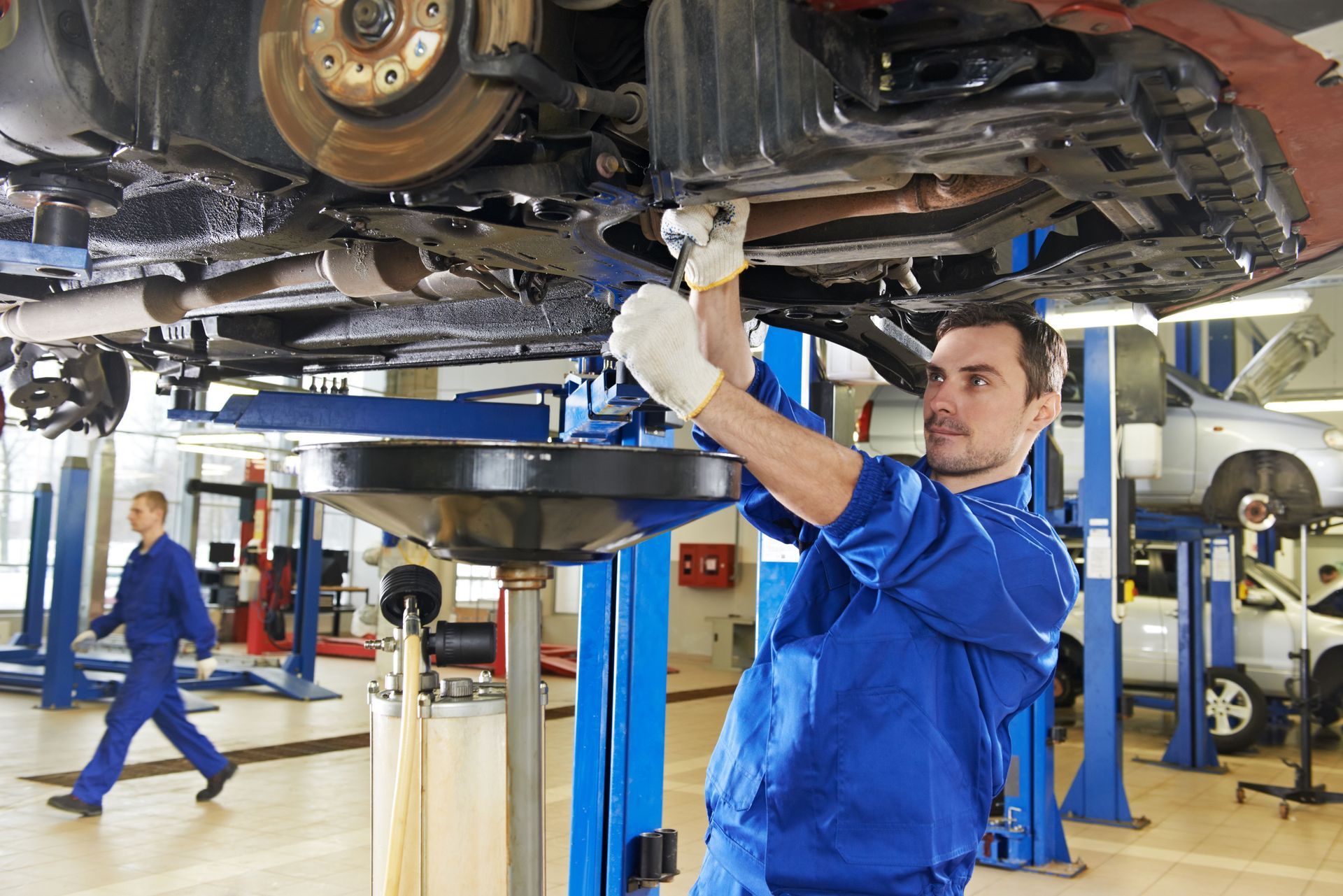
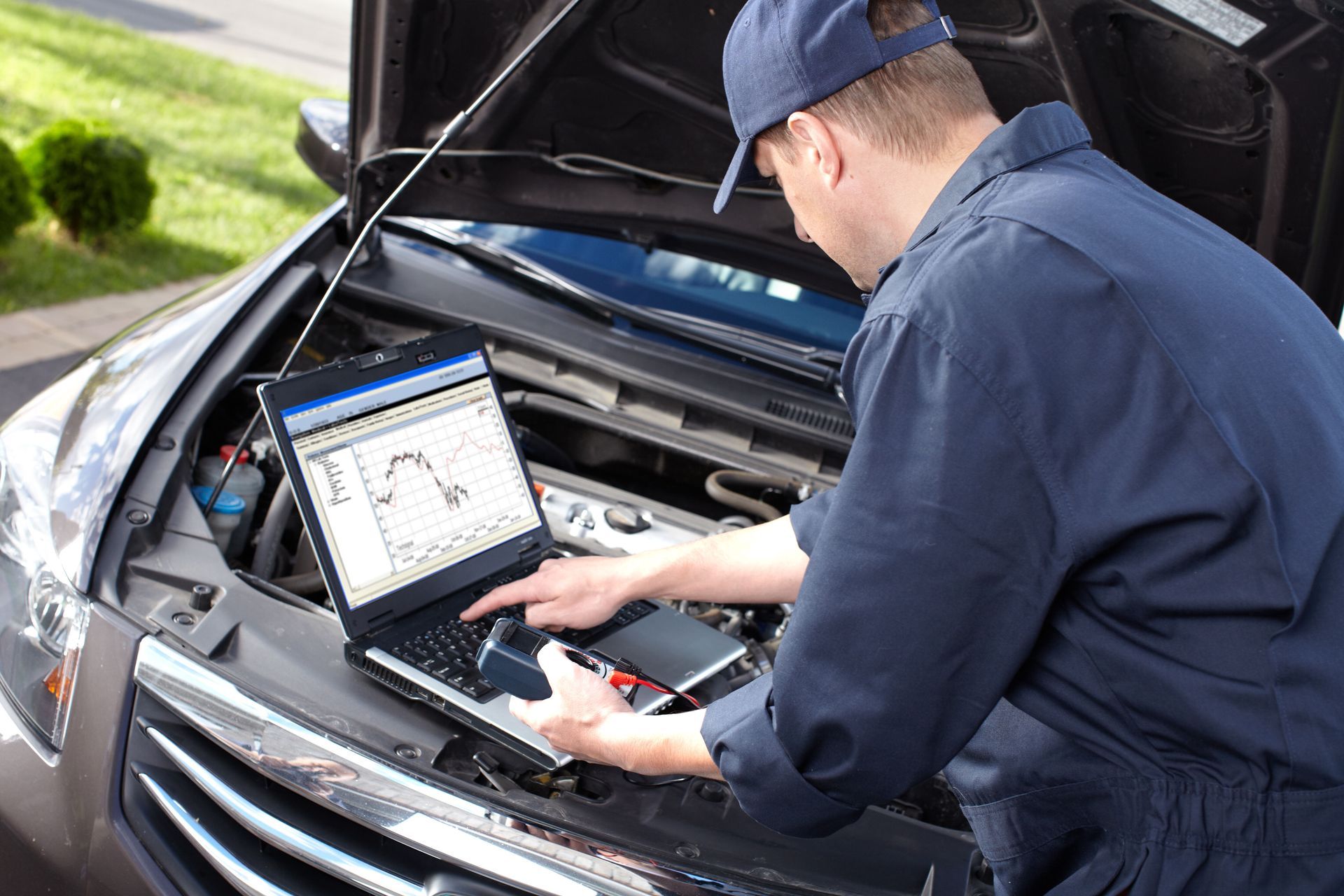
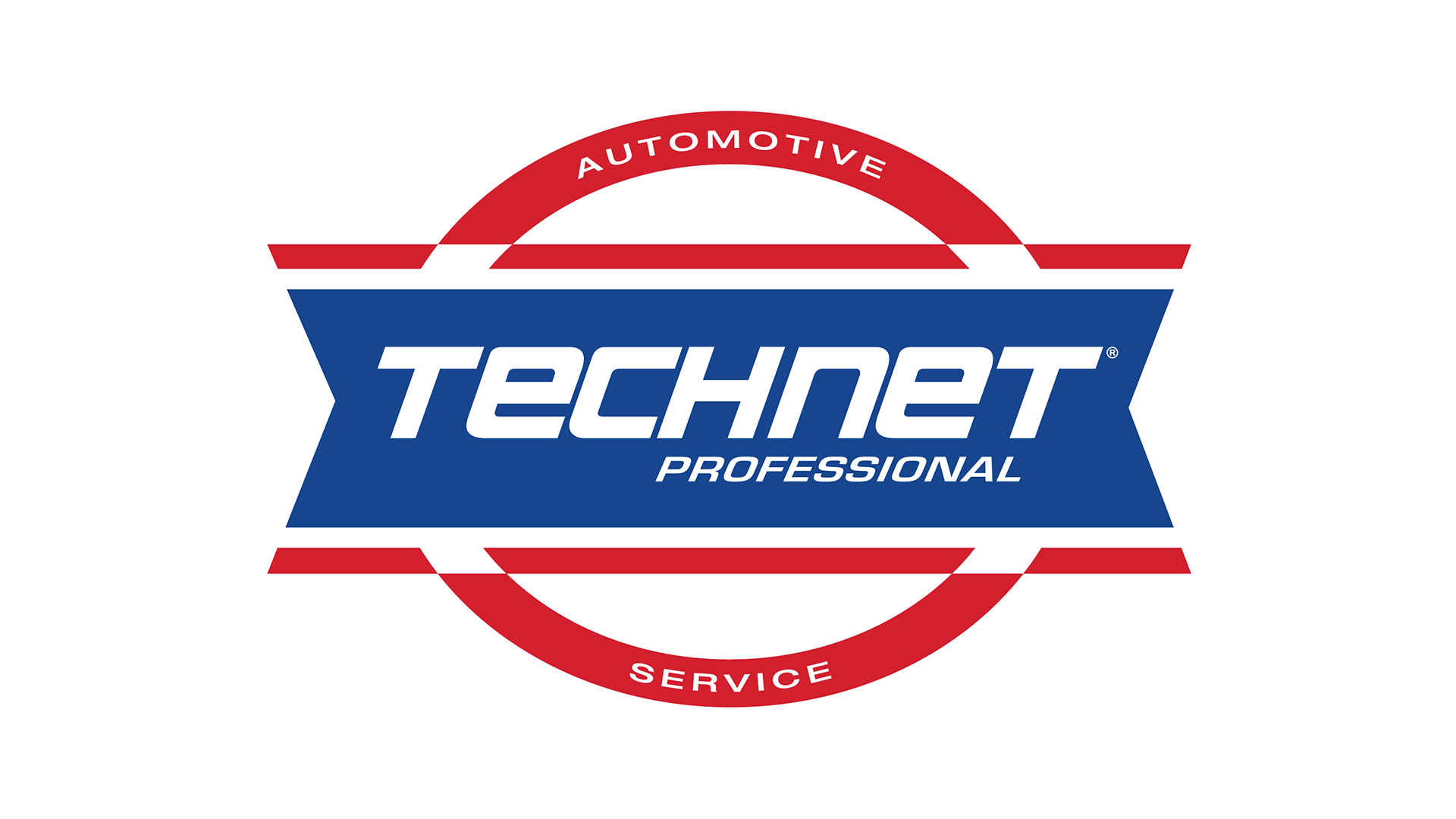
Share On: